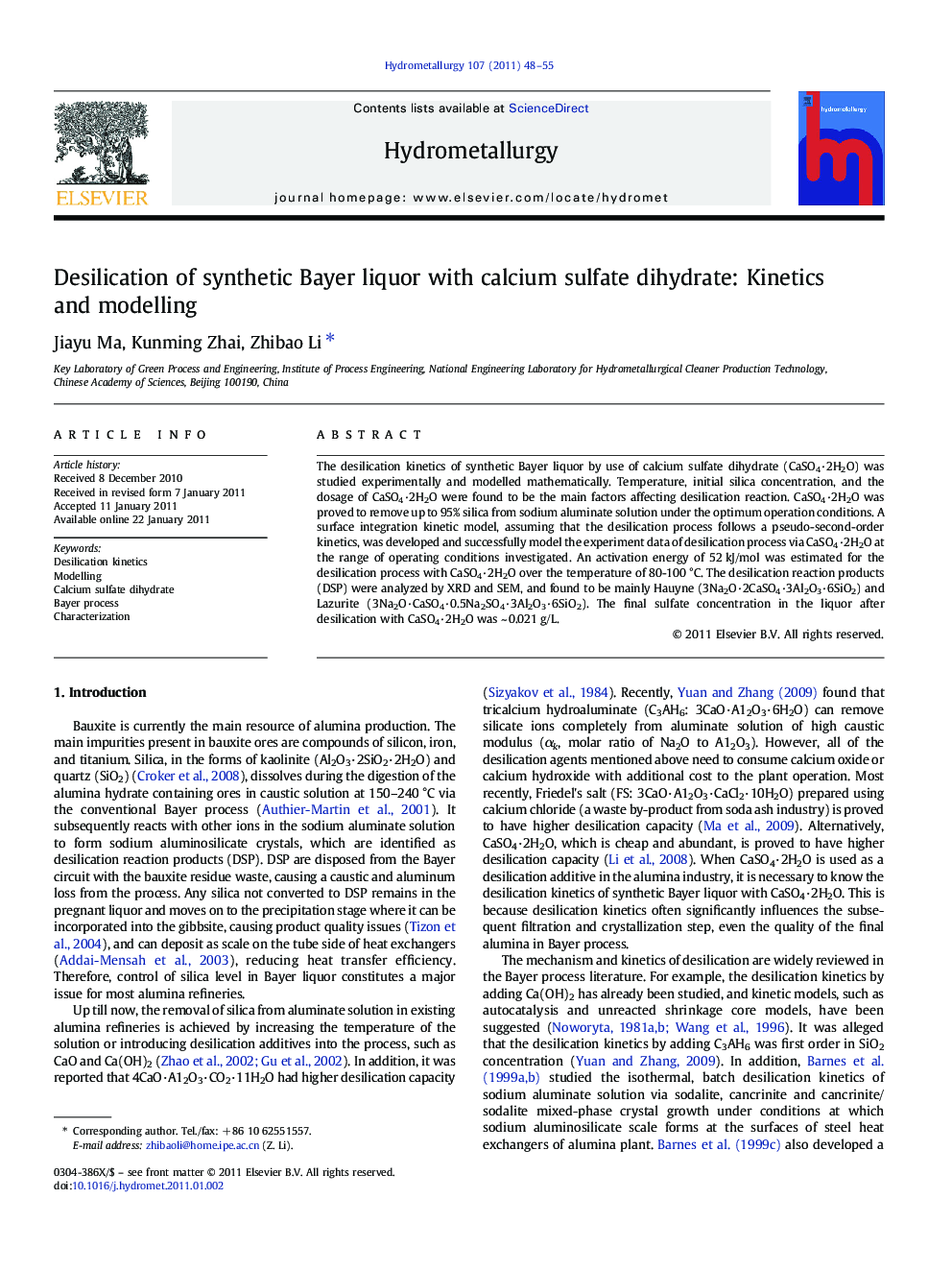| کد مقاله | کد نشریه | سال انتشار | مقاله انگلیسی | نسخه تمام متن |
|---|---|---|---|---|
| 212818 | 462068 | 2011 | 8 صفحه PDF | دانلود رایگان |

The desilication kinetics of synthetic Bayer liquor by use of calcium sulfate dihydrate (CaSO4·2H2O) was studied experimentally and modelled mathematically. Temperature, initial silica concentration, and the dosage of CaSO4·2H2O were found to be the main factors affecting desilication reaction. CaSO4·2H2O was proved to remove up to 95% silica from sodium aluminate solution under the optimum operation conditions. A surface integration kinetic model, assuming that the desilication process follows a pseudo-second-order kinetics, was developed and successfully model the experiment data of desilication process via CaSO4·2H2O at the range of operating conditions investigated. An activation energy of 52 kJ/mol was estimated for the desilication process with CaSO4·2H2O over the temperature of 80-100 °C. The desilication reaction products (DSP) were analyzed by XRD and SEM, and found to be mainly Hauyne (3Na2O·2CaSO4·3Al2O3·6SiO2) and Lazurite (3Na2O·CaSO4·0.5Na2SO4·3Al2O3·6SiO2). The final sulfate concentration in the liquor after desilication with CaSO4·2H2O was ~ 0.021 g/L.
Research Highlights
► CaSO4·2H2O can be used as a desilication agent in the alumina industry.
► Temperature, silica concentration, CaSO4·2H2O dosage affect strongly desilication.
► Desilication with CaSO4·2H2O is a second order surface integration process.
► The activation energy of desilication process via CaSO4·2H2O is 52 kJ/mol.
Journal: Hydrometallurgy - Volume 107, Issues 1–2, April 2011, Pages 48–55